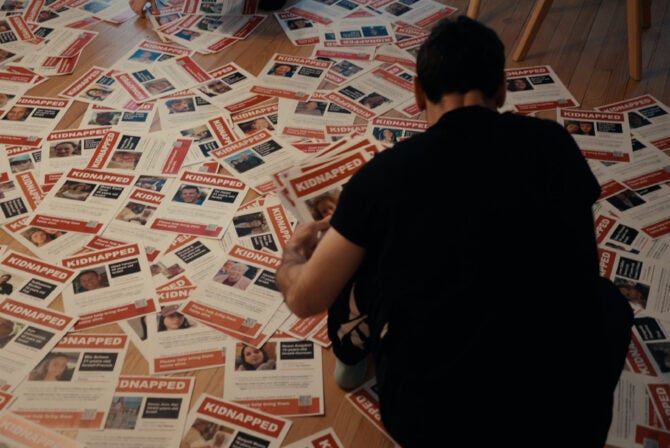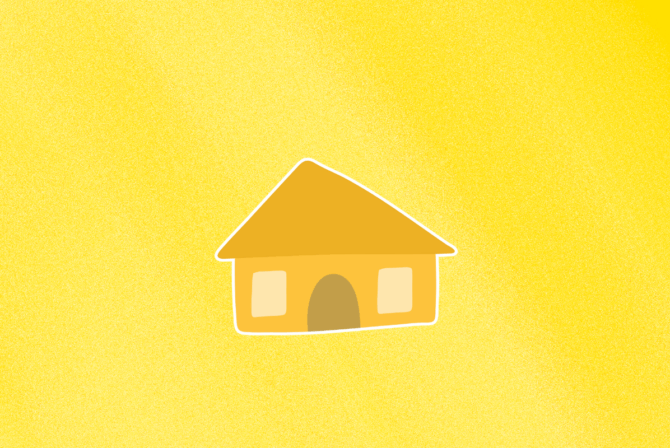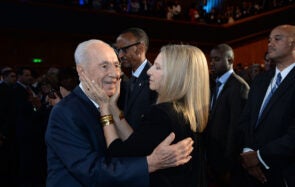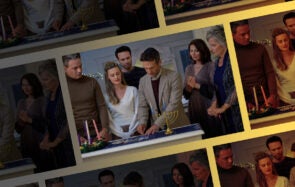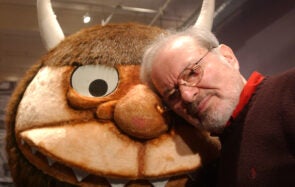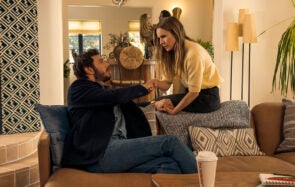Getting married at 23, my adult life had thus far been going according to plan. When, at 30, that plan collapsed, I was left without a plan B. For me, that was the moment of defining life in terms of “before” and “after” my miscarriage.
My journey to motherhood began when, after unsuccessfully trying to conceive for several months, my doctor discovered and subsequently removed a 2-cm polyp in my uterus. Within four months I was pregnant.
It was an exciting time—a secret shared between husband and wife (and the bartender who served my husband a beer while I happily sipped my pomegranate and seltzer). My husband and I discussed girls’ names. I was growing a beautiful little girl with soft brown ringlets, big brown eyes, and a hearty laugh. Her name? Well, we never got that far.
At 6 weeks, my pregnancy was confirmed, my hormone levels were within the appropriate range, and we were going to come back two weeks later to hear our baby’s heartbeat. Unfortunately, the heartbeat we so longed to hear didn’t beat long enough for us to catch it. The sullen look on the sonographer’s face was implicative of what the doctor would eventually confirm.
I knew. How could I not? After she left to grab the doctor, I looked to my husband and said, “This is it. It’s bad, I can tell.” After a few minutes, the doctor came in—with an expression almost identical to that of the sonographer. No explanation was needed. He expressed his condolences while I crumbled inside, yet somehow managed to appear calm. I handle adversity with grace. It’s kind of like my super power—or maybe it’s just that I hadn’t fully absorbed the bad news. We came up with a game plan—take the path of least resistance and wait it out.
The following weekend was Thanksgiving. We chose to cancel our travel plans. I was in pregnancy purgatory. When would I miscarry? Soon? Tomorrow? Next week? The doctor told me to expect what would seem like a “heavy period.” He told me that my body would release something marble-sized. That would be the embryo. It took two weeks until that moment. Two long, intense, tear-filled weeks mourning the baby inside until I was officially no longer pregnant.
I believed that I let my family down—my baby, my husband, myself. I failed. With my hand on my stomach, I apologized to the baby that should have been growing inside. “I am so sorry,” I said. So terribly sorry.
Mourning my first pregnancy was one of the loneliest, hardest, saddest times in my life. I pulled strength from my husband, parents, and a few key friends and family members.
But the blame. Oh, how I blamed myself, my weight, my work/life balance. I was convinced that this was entirely my fault. This added to my sense of loneliness from the loss. My body, my trauma. You went through it, too? It didn’t seem to matter. My family provided army-like support: strong, unwavering, present. Yet still, I wasn’t strong and was therefore unable to absorb their strength, presence, or love. I was not at peace.
Invitations to children’s birthday parties seemed to arrive daily. “Come party with us for our son’s 2nd birthday!” “Look who is turning 1!” I fiercely envied my friends who had the opportunity to experience parenthood. One child is all I wanted, one healthy baby to celebrate. I tried going to birthday parties. I showed up with my biggest smile and left crying. Finally, I made the decision to turn down the invitations. I sent a gift instead. Despite desperately wanting (and even trying) to share in my friends’ joys, I simply couldn’t. It reignited and perseverated my pain.
I tried to get through each day knowing that this experience was going to become an embedded memory—one which did not solely define my journey to motherhood. And eventually, that is what it became—part of my story. It took me a year of self-reflection, self-acceptance, and willingness to receive emotional support to finally find peace in my miscarriage and to accept that it was not my fault. I now view it as the time my body was priming itself to be the best home it could be for my son.
And yet, ask me how old that first baby would have been today? I can tell you.
Miscarriage is not a four-letter word. I am no longer afraid to share my story. I want to help women find peace, remind them that they are not alone, and reassure them that this is not their fault.
And to the baby who never came to be: You gave me hope. You will always inspire me. You who never saw the sun.

